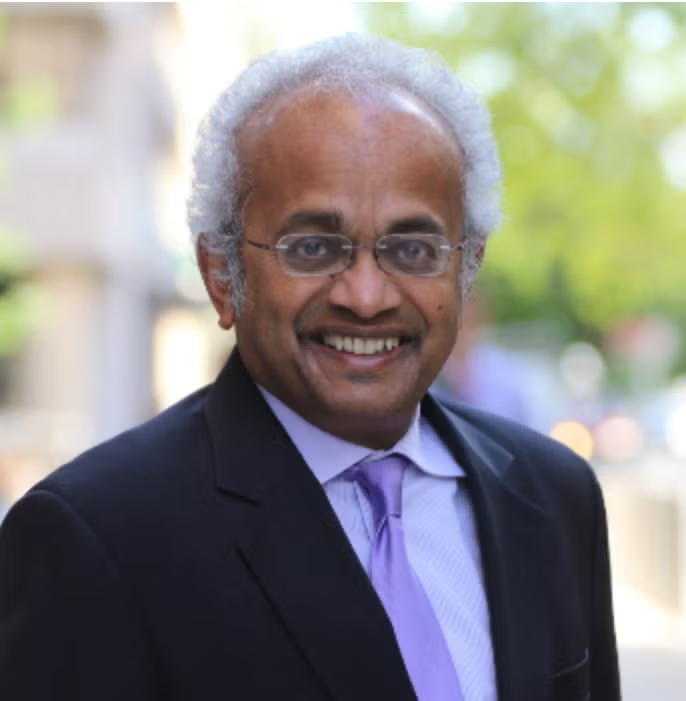This week, we sat down with our distinguished Chair of the International Development (IDEV) Concentration, Professor Shantayanan Devarajan. The IDEV Concentration bridges both development theory and practice to prepare students for work in a complex, evolving field. In this interview, Professor Devarajan speaks about the development field, his experiences, and what he hopes IDEV-concentrators take with them into their careers.

Q: In your opinion, what is the most pressing international development issue at the moment?
A: The most pressing issue is weak governance. In too many countries, public policies (and therefore public finances) have been captured by elites who then block pro-poor policies. Examples include education policies (where unaccountable teachers leave students unable to read and write), absentee doctors in clinics, industrial monopolists who prevent competition from abroad, and politicians (who send cash transfers to their constituents rather than to the poor).
Q: Economic development and climate mitigation may seem contradictory at times. How can students balance competing needs of economic development and climate mitigation as they advance in their fields?
A: There is no contradiction. The countries that need economic development are not the biggest carbon emitters (China and the U.S. are). Africa as a whole contributes 3 percent of global greenhouse gas emissions. So these poor countries should concentrate on their development. Of course, as renewable energy becomes cheaper and more reliable, they should switch to this–because it would be good for development. I should add that these poor countries are coming under pressure from rich countries to do more on mitigation–but this may be because the rich countries are unable to do more in their own countries due to domestic political resistance.
Q: How should academics and practitioners in the field of international development work together to facilitate more effective development policies?
A: Academics can provide rigorous empirical evidence to underpin the work of practitioners. For instance, if you want to help poor people with targeted cash transfers, academic research can show how to design an effective cash transfers system (and avoid one that is ineffective). At the same time, the work of practitioners turns up various puzzles and conundrums that academics can then research and try to solve. My research on the fragility trap in Africa, for instance, was triggered by working with practitioners who were trying to provide assistance to Guinea-Bissau, a country that seemed to be perpetually in conflict.
Q: You studied mathematics as an undergraduate; what inspired you to pivot towards economics and international development?
A: Towards the end of my undergraduate years, I was looking for some way to apply the mathematics I had learned. My advisor, who was a professor of mathematics and economics, suggested I try economics. I really liked it and decided to do a Ph.D. in economics. The interest in development started with a summer internship at the World Bank (while I was still an undergraduate) where we evaluated the spillover effects of an irrigation project in Malaysia. The guy I worked with and I hit it off really well, and I ended up spending several summers at the Bank working with him. Then, when I finished my Ph.D., I started teaching at Harvard Kennedy School. While my training had been in economic theory, the students at the Kennedy School kept asking me for the applications of the models I was teaching them to the real world. I soon started learning about these applications and found them fascinating, so I decided to combine my interest in applied economics with the work I was doing at the World Bank into a 28-year career at the Bank.
Q: What advice would you give to students looking to pursue a career in international development? What is the best way to break into the industry?
A: The first piece of advice is to think, as the question suggests, about a career in international development rather than in a particular part of the field, such as national government, international organizations, private sector or an NGO. Most people go through more than one of these types of organizations in the course of a career. The second is to take the job that captures your imagination the most, without much consideration for location, grade, or size of institution. What’s important is to do well in your first job, and that is more likely if you are interested and passionate about the work.
Q: When it comes to the IDEV Concentration, what skills, lessons, and expertise do you hope students will take with them after graduating from the program?
A: I hope they take the lesson that there are no simple solutions to development problems. The subtitle of the IDEV gateway course is “Balancing Market Failures and Government Failures.” The key word is “balancing”. Development is the art of balancing these two forces, without yielding to one. Associated with this is a sense of humility, that “we” don’t have all the answers, and that the people whom we are trying to help may actually have a better sense of what would benefit them.
